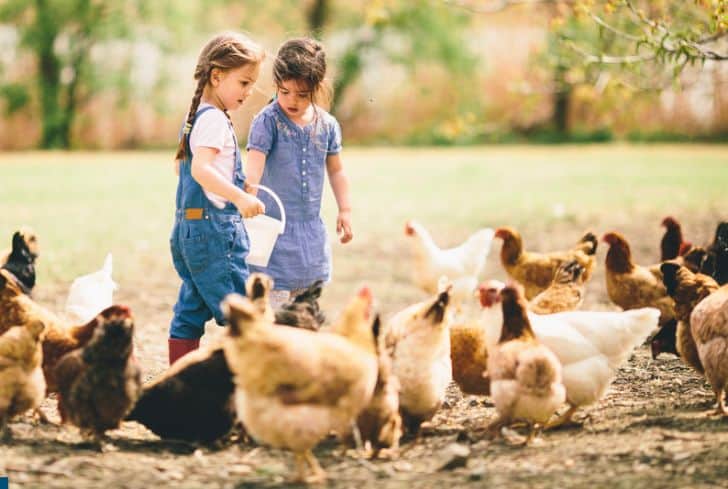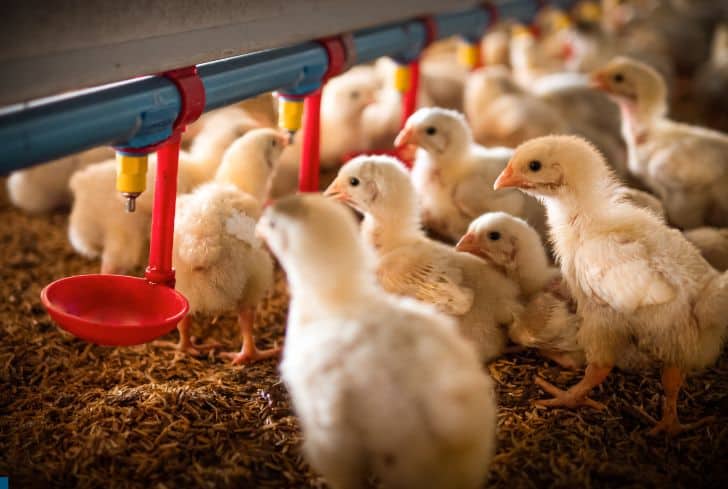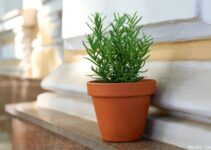We all think of the benefits of raising chickens for their eggs, but if you have space for composting their waste, you can also make a fertilizer high in nitrogen. Composted chicken manure is an important asset for your garden since it is a complete fertilizer and a great supply of organic matter.
It contains all the essential nutrients and trace elements that plants need. Knowing how valuable chicken poop is makes you wonder if you can include it in your compost. Can you put chicken poop in compost? Read on to find out!
Is Chicken Poop Safe For Composting?
Yes, composting is safe for chicken poop. It is an important source of vitamins and minerals for the compost heap. High potassium, phosphate, and nitrogen levels—components necessary for a healthy plant’s growth—can be found in chicken dung.
When composting chicken dung, there are a few things to keep in mind, though:
Age and Decomposing Process
New chicken manure is strong in ammonium and may damage plants if sprayed directly. Before applying the manure in your garden, it is best to compost it. Manure can decompose through composting, which lowers the danger of diseases and makes it safe to handle.
Temperature and Time
The pile should achieve a temperature of 131°F to 155°F for optimal composting. These temperatures kill any possible pathogens. To guarantee full sanitation, keep the temperature at these levels for at least three days.
Proper Composting Conditions
It is crucial to establish the ideal conditions to compost chicken poop successfully. To assist in balancing the carbon-to-nitrogen ratio, combine the manure with additional organic matter such as wood shavings, leaves, or straw. Aeration and decomposition are aided by routine compost turning.
Composting Pathogens
Even though manure pathogens can be reduced or eliminated through composting, handling compost carefully and maintaining proper hygiene is vital. Immediately after handling compost or raw manure, properly wash your hands.
Manure Compost
Compost should be appropriate for use in your garden after the composting procedure is finished and has aged for a few months. Composted chicken dung will enrich your soil with beneficial nutrients and organic matter, improving plant wellness and fertility.
Benefits of Chicken Manure Compost For Your Garden
Compost made from chicken dung has numerous positive effects on the soil and the plants you grow. Here are some of the main advantages it can offer:
- Organic Fertilizer: It increases the soil’s nutrient content by adding magnesium, calcium, nitrogen, sulfur, potassium, copper, phosphorus, zinc, manganese, and iron.
- Enhances Soil Structure: Contributes to better soil aeration, drainage, and water retention.
- Feeds Soil Microbes: Using organic materials like composted chicken manure, soil microbes make nutrients more accessible to plants.
Nitrogen-loving plants benefit notably from compost made from chicken manure. Soil with chicken manure benefits plants, including tomatoes, leafy greens, cucumbers, peppers, squash, pole beans, sweet corn, and rhubarb.
How To Compost Chicken Poop?
An average-sized hen generates 1 cubic foot of dung every six months. Manure cannot keep accumulating in your coop. It smells bad, draws vermin and flies, and your chickens should not inhale the ammonia. It needs either much heat or much duration to compost chicken dung.
Hot Composting
Utilizing a hot composting method is the first and quickest approach to composting chicken manure. You must heat chicken dung in a hot composting machine for a minimum of 15 days at a temperature of at least 130 F.
The material degrades more quickly in such systems due to higher temperatures, and microorganisms typically perish at higher temperatures. This greatly lowers the possibility of contamination.
Interestingly, you may utilize the heat produced by decaying manure. Making a heating bed for wintertime growing is one solution.
A hot compost pile can also be used to heat the water before it is run via water pipes into a greenhouse’s growing regions. This is one method of heating the area. This means that more may be grown in colder climates over the winter.
Cold Composting
You can also use a standard cold composting pile or bin. Materials decompose very slowly during the cold composting process. Only much later, after a significantly longer period, is the manure safe to use.
Prior to employing the substance in your garden, it is preferable to compost the waste for a year. A deep waste bed in a house or run can also be used to compost chicken feces successfully. Essentially, this is in-place composting.
A deep litter bed requires combining the proper proportion of nitrogen and carbon-rich materials, much like conventional cold composting. Obtaining the ideal ratio enables them to decompose successfully.
Add fresh bedding material on top as the old materials decompose. The animal bedding and manure mixture will eventually produce compost you may use in your garden.
The bedding-to-manure ratio will rely on the bedding used. However, due to the high nitrogen content in chicken dung, it is crucial to ensure that there is enough carbon-rich material.

Can You Put Chicken Poop Directly in the Garden?
Although not utilized directly, chicken manure may be helpful in the garden. Spreading fresh manure around your edible garden is a bad idea for various reasons.
First and foremost, chicken dung can include germs and other diseases like other manures. Salmonella is one of those that can seriously endanger human health. Wearing mittens when handling the substance and properly washing your hands after any contact is crucial to prevent contamination.
The viruses that are dangerous to humans will not kill plants, but they can linger in the soil for long periods and potentially infect you by touching or even getting into the crops you produce.
Second, new chicken dung contains a lot of nitrogen, which can ‘burn’ plants and even kill them. If a plant’s roots get into proximity to too much nitrogen-rich substance, the roots may become injured.
The problem of smell is the last one. However, it is less important than the issues raised above. Fresh chicken dung can be quite strong; you want it to be in something other than edible plants or in routinely tended areas.
Composting chicken manure is a simple process, making it safe for individuals and plants to spread about your growing regions or use in additional applications in your garden.
Does Chicken Poop Compost Smell?
Yes, when composting, chicken dung can emit a pungent stench. The strong ammonia smell results from the high ammonia concentration of fresh chicken feces. However, the stench ought to greatly lessen or change to smell more earthy after being composted properly.
One of the main drawbacks to spreading chicken manure on agricultural land is the unfavorable odor inextricably linked to poultry manure. Up to 150 different substances combine to form the smell of chicken dung.
The decomposition of bedding materials, feathers, spilled feed, dust, and chicken droppings primarily produces odors. Maintaining the proper carbon-to-nitrogen ratio, providing sufficient aeration, and controlling moisture levels are crucial for reducing odor during composting.
Straw, dried leaves, or wood shavings are carbon-rich materials that can be added in large quantities to make compost piles that are more balanced and assist in absorbing odors.
Turning the compost heap frequently promotes greater aeration and decomposition and may reduce odors. Controlling odor can also be aided by monitoring and regulating moisture levels to keep the compost moist without becoming too so.
You may easily control the smell related to composting chicken manure by using proper composting procedures and keeping a well-balanced compost pile.
How Long Does Chicken Poop Last in Soil?
It can take a couple of months to one year for freshly deposited chicken manure to decompose and integrate into the soil. Plants may now access the vitamins and minerals in the manure, which encourages their growth.
Several variables, including environmental conditions, soil composition, and management techniques, can affect how long chicken feces remains in the soil.
If handled properly, chicken manure can positively impact the soil because it is rich in minerals and organic matter. However, excessive or improper management of the chicken excrement may result in nutrient deficiencies or environmental problems.
Nutrient runoff or leaching caused by excessive application without sufficient composting or dilution may severely affect the water quality and neighboring ecosystems.
It is typically advised to compost chicken dung before using it as a soil additive to maximize its benefits. Composting chicken dung enhances its ability to construct soil by stabilizing the nutrients, lowering the risk of pathogen growth, and reducing potential infections.
Composting normally takes a few months, depending on conditions like temperature, moisture, and correct pile stirring. Overall, the management of the manure, the unique characteristics of the soil, and the regional climate all influence how it affects the soil and how long it remains there.
Chicken poop can be a beneficial supplement to enhance the fertility of the soil and plant health if used sensibly and responsibly.
Conclusion
In conclusion, composting can be successfully and safely done with chicken excrement. Fresh chicken dung is a great source of essential nutrients for the compost pile, but it should be decomposed first to reduce the risk of pathogens and plant burn.
Composting chicken dung improves waste breakdown, lessens smells, and produces a soil amendment rich in nutrients. You may turn chicken poop into a useful resource for your garden by adhering to correct composting procedures.






